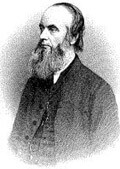the Third Week after Epiphany
Click here to learn more!
Bible Commentaries
Alford's Greek Testament Critical Exegetical Commentary Alford's Greek Testament Commentary
Old Testament
Jesus' life, teachings, and fulfillment of Old Testament prophecies as the Messiah. Mark
A fast-paced account of Jesus' ministry, focusing on his actions and sacrificial death. Luke
Jesus' life, emphasizing compassion for the marginalized and the universal scope of salvation. John
Theological reflections on Jesus as the Word of God, focusing on his divine nature and mission. Acts
The early church's growth, the apostles' ministry, and the spread of the Gospel. Romans
A theological treatise on salvation, grace, faith, and righteousness through Jesus Christ for all. 1 Corinthians
Paul addresses divisions, immorality, and spiritual gifts in the Corinthian church. 2 Corinthians
Paul's defense of his apostleship, his sufferings, and the power of God's grace. Galatians
Paul's defense of the Gospel of grace against legalism, emphasizing faith in Christ alone. Ephesians
Paul's teachings on the church's unity, spiritual blessings in Christ, and Christian conduct. Philippians
A letter of joy and encouragement, urging humility and faithfulness amid persecution. Colossians
Paul's emphasis on Christ's supremacy and warnings against false teachings. 1 Thessalonians
Encouragement to a young church, with teachings on holiness and Christ's return. 2 Thessalonians
Clarifications about Christ's return and exhortations to stand firm in faith. 1 Timothy
Guidance for church leadership, sound teaching, moral conduct, and defending the truth of the gospel. 2 Timothy
Paul's final exhortations to Timothy, emphasizing perseverance and faithfulness. Titus
Instructions for establishing order in the church, promoting sound doctrine, and living with integrity. Philemon
A personal appeal for the forgiveness and restoration of a runaway slave, Onesimus. Hebrews
An insightful look at Christ's supremacy, priesthood, and the fulfillment of prophecies. James
Practical wisdom on living out one's faith through good works and righteous behavior. 1 Peter
Encouragement for suffering Christians to remain faithful and hopeful in their trials. 2 Peter
A reminder to grow in faith, resist false teachings, and remain steadfast awaiting His return. 1 John
Teachings on love, obedience, and assurance of salvation through fellowship with God. 2 John
A letter encouraging love, obedience to God's commands, caution against teachings that deny Christ's truth. 3 John
A personal letter commending hospitality and warning against arrogance in church leadership. Jude
A strong warning against false teachers and a passionate call to defend the faith and uphold the truth. Revelation
Apocalyptic visions of God's ultimate victory, Christ's return, and the new heaven and earth.
Author's Biography
Henry Alford (1810-1871) was a distinguished English clergyman, theologian, and scholar, best remembered for his monumental work, "The Greek Testament." This comprehensive commentary on the New Testament, notable for its exhaustive philological analysis and insightful interpretation of the Greek text, established Alford as a formidable figure in biblical scholarship and a key contributor to nineteenth-century theological studies.
Born in London, Alford demonstrated an early proclivity for languages and scholarly pursuits. His education at Trinity College, Cambridge, honed his talents, leading to a remarkable academic and ecclesiastical career. Alford's intellectual journey was marked by a voracious appetite for knowledge, spanning various disciplines from poetry to theology, which enriched his subsequent writings and sermons.
Alford's tenure as the Dean of Canterbury from 1857 until his death in 1871 was a period of prolific output and theological inquiry. His "The Greek Testament" is a testament to his belief in the importance of understanding Scripture in its original language to grasp its fullest meaning. Alford's commentary was groundbreaking, offering critical notes, grammatical insights, and theological reflection that have influenced New Testament scholarship to this day.
Beyond his scholarly achievements, Alford was also known for his hymnody, contributing several hymns that remain in use. His literary and poetic talents were another avenue through which he expressed his deep faith and theological reflections.
Alford's legacy is that of a renaissance man in the realm of ecclesiastical scholarship-a scholar who combined meticulous academic rigor with a pastor's heart. His work transcends time, continuing to offer valuable insights to theologians, pastors, and lay readers alike, seeking to deepen their understanding of the New Testament. Through his writings, Henry Alford remains a guiding light in the exploration of biblical texts, embodying the synthesis of faith and intellect.
